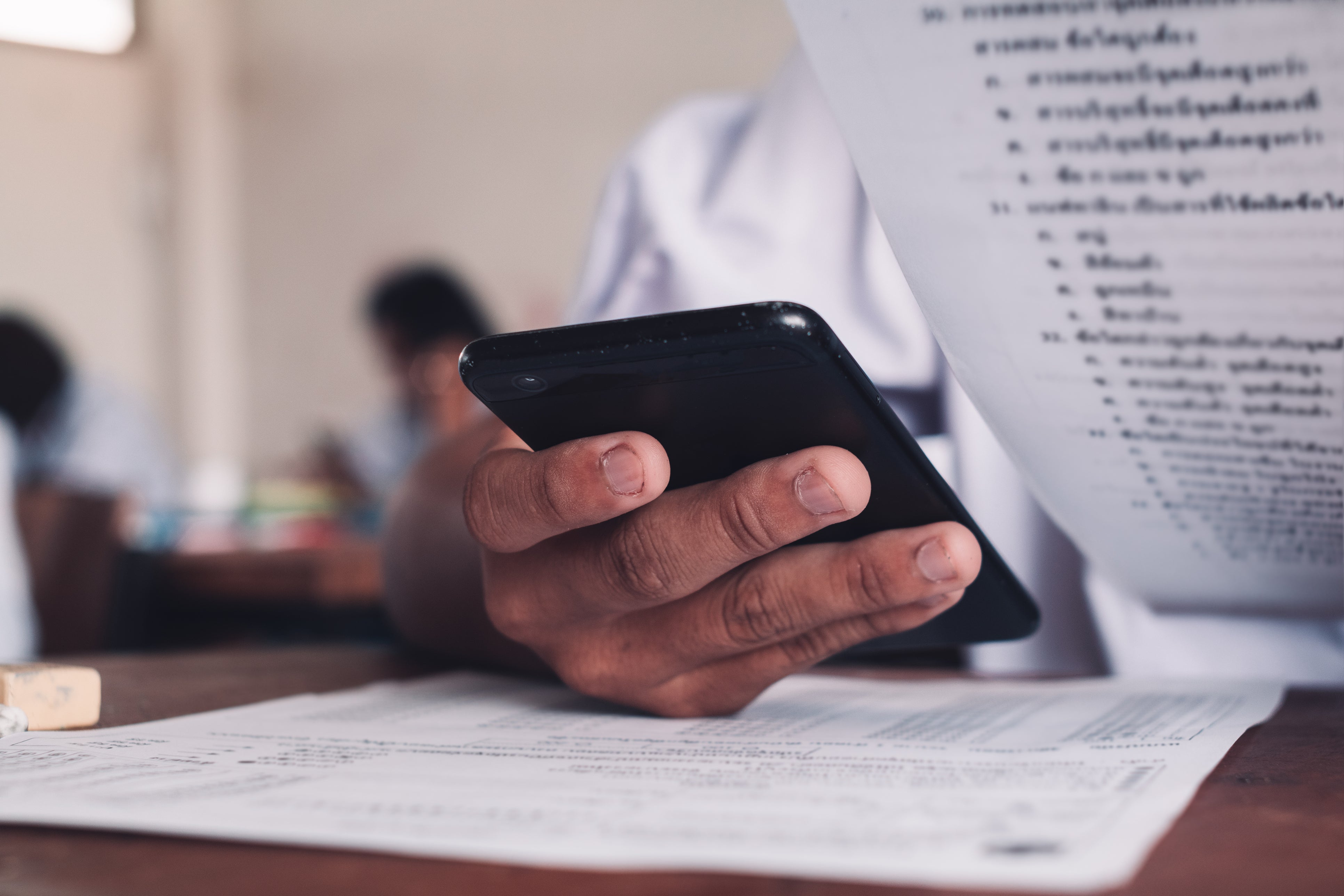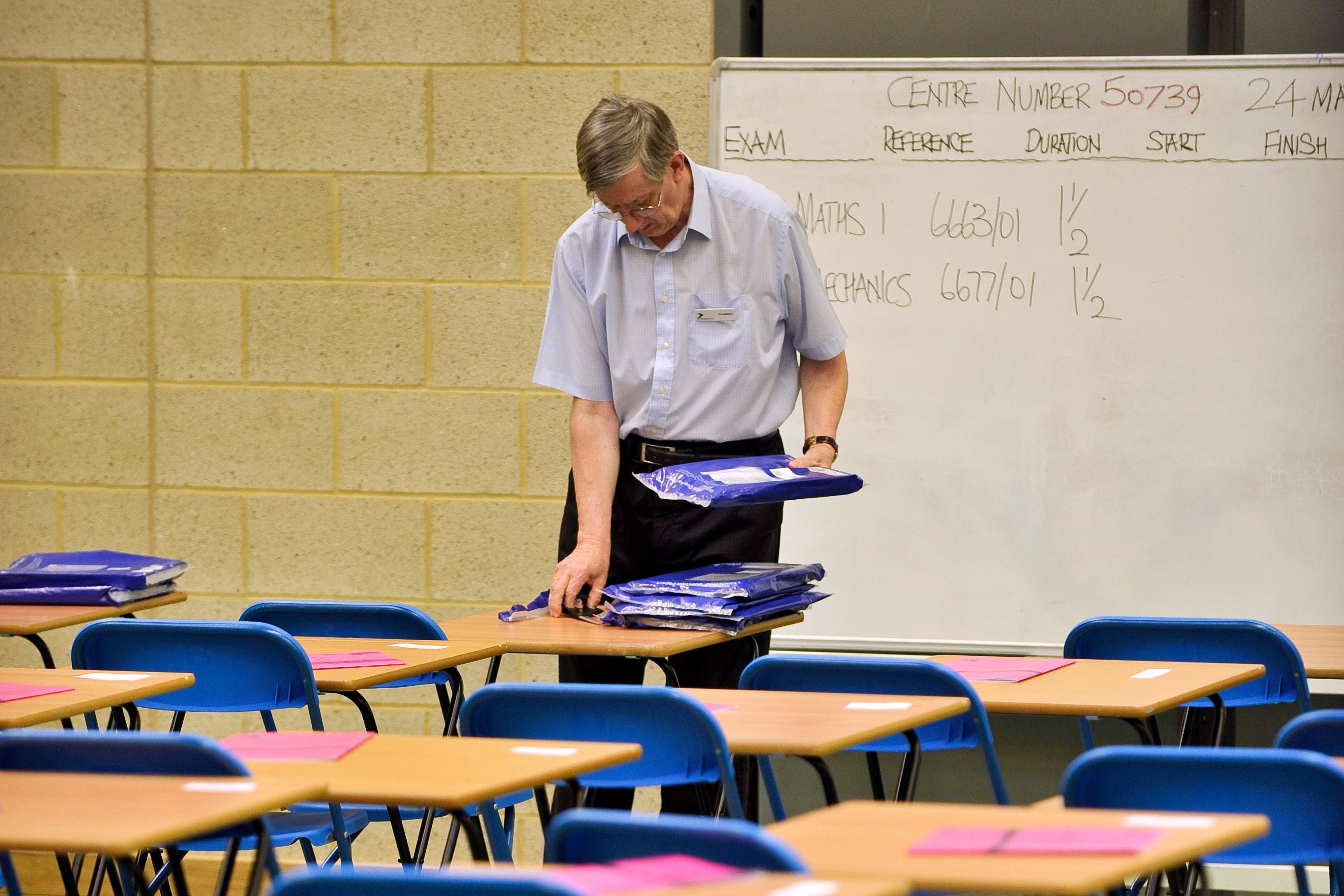Pupils warned of punishment if they search for exam papers on social media
Accounts claiming to sell exam papers are ‘almost always scams’, the regulator warned

Pupils have been told they risk being disqualified if they look for exam papers on social media.
Teenagers who look for the exams or take their phones into an exam hall face the punishment, England’s exams regulator warned.
There were 2,180 cases with penalties for this type of offence in 2023, compared with 1,825 in 2022, according to figures from the exams regulator.
Students should report accounts claiming to sell this year’s exam papers – which are “almost always scams” – to teachers, the chief regulator has said.
Ahead of exam season, Ofqual has urged students to plan somewhere safe to leave their mobile device during exams after instances of students being found with mobile devices in exams have almost doubled since 2018.
Research for Ofqual last year suggested that most students do not intend to use their phones to cheat, but they do not want to be separated from them as they are worried about loss or damage.
Sir Ian Bauckham, chief regulator at Ofqual, said: “Students should also be aware of the risks of exam papers on social media.
“Accounts claiming to sell this year’s exam papers are almost always scams. Students should report these accounts to teachers.
“Students risk losing the qualification they’ve been studying for if they search for or communicate with social media accounts claiming to sell leaked exam papers.
“Sanctions can still apply even if the papers turn out to be fake. Buying papers is never worth the risk.”

Sir Ian added: “Students have been working hard to prepare for their exams, and nobody wants them to miss out on their grades and qualifications.
“Thankfully, most students are aware of the risks of malpractice and comply with the rules.
“It’s important that the rules are followed so that grades reflect what a student knows, understands and can do.”
Ofqual data, released in December last year, showed that there were 4,895 cases of malpractice during GCSEs, AS and A-level examinations which included students in 2023, up from 4,105 in 2022.
A spokesperson for the Joint Council for Qualifications (JCQ), which represents the UK’s major exam boards, said: “It is important students know to report fraudulent accounts claiming to sell exam papers on social media to their teachers.
“JCQ wishes all students well with their exams and assessments.”
Pepe Di’Iasio, general secretary of the Association of School and College Leaders (ASCL), said: “We are sure that the vast majority of students taking exams will stick to the rules, but there are always some who do not do so, and unfortunately the misuse of digital technology is a real headache.
“Schools and colleges rigorously police exam rooms to ensure that devices are not brought in by candidates and they warn students not to try to find exam papers on social media.
“These are generally fake papers being circulated as a scam, but in the rare event of a genuine paper being leaked, any student accessing that paper risks disqualification.
“It is really important that students take heed of these warnings.”